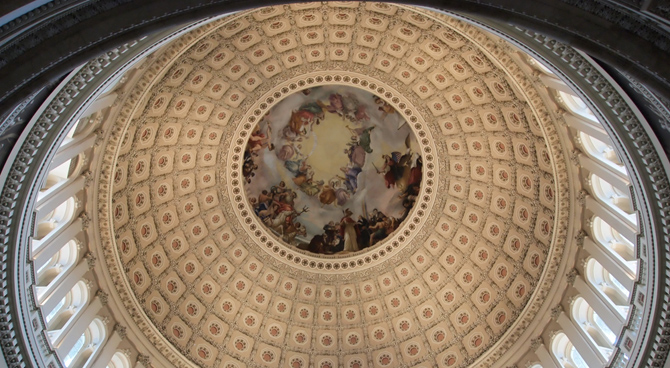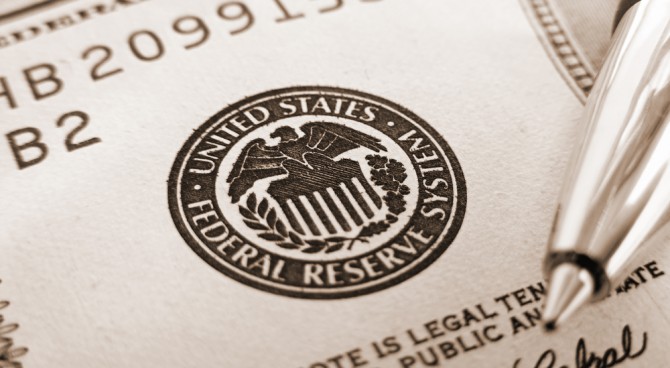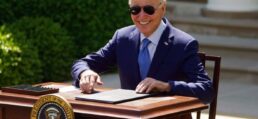His regulatory barrage and failed Progressive-era policies imperil economic exceptionalism in the U.S.
April 24, 2023 1:14 pm ET
From Wall Street to Silicon Valley, from the Permian Basin to the Chicago Loop, an iron net of regulation has descended across the American economy. Churchill’s metaphor conveys the magnitude of the onslaught and the peril it poses to the American economy and our freedom. We face not an errant regulator or an officious bureaucrat, but a sea change in the economy’s regulatory ecosystem. The executive branch and its regulatory agencies are unbound by the laws they are supposed to uphold and hostile to the industries they regulate, undermining the political accountability at the heart of our republican government.
In the short term, President Biden’s regulatory tsunami will fuel inflation and make a recession more likely. In the long term, it could smother America’s productivity, wages and living standards. If the U.S. puts on a European-style rules straitjacket, American economic exceptionalism will perish.
That the federal government’s regulatory power would be dramatically different during the Biden administration was revealed on day one, when the president instructed every department, agency and office to tilt the scales of cost-benefit analysis by counting “social welfare, racial justice, environmental stewardship, human dignity, equity, and the interests of future generations” in measuring the benefits of government action. Though interest rates have tripled in the past two years, the administration is now reducing the discount rate used to value future benefits of its regulations by 75%, thereby artificially inflating their value. Thus traditional cost-benefit analysis, begun under President Carter to constrain government, is being used to expand government’s power and reach.
Administration officials and regulators enforce environmental policies never adopted by Congress. Using corporate average fuel economy standards designed to conserve fossil fuels, the Transportation Department seeks to end fossil-fuel use with unachievable standards. With no basis in law, the Office of the Comptroller of the Currency forces banks, and the Securities and Exchange Commission compels public companies, to implement environmental policy and either pass those costs on to consumers or absorb them in lower profits.
To fund environmental, social and governance goals with your retirement savings, the Labor Department will override the obligation set out in the 1974 Employee Retirement Income Security Act for investments to be made by fiduciaries “solely in the interest of,” and for the “exclusive purpose” of providing benefits to, the investor.
Mr. Biden’s executive orders have targeted mergers and acquisitions independent of consumer benefit and targeted the oil and gas industry for extinction. His regulatory and antitrust policies imperil reforms implemented by Mr. Carter, including the deregulation of airlines, trucking, railroads, energy and communications. That deregulation reinvigorated the economy, fueled the Reagan recovery and laid the foundation of America’s current prosperity.
Antitrust policies have morphed into a cudgel with the mantra that “big is bad”—except for government. The tech industry, the crown jewel of American competitiveness, is under siege. The Federal Trade Commission’s efforts to break up Google, Meta, Apple and Amazon—without a hint of congressional authorization—threaten workers, customers and investors. Their stocks have enriched individual retirement accounts, 401(k)s, annuities, insurance policies and public and private pension plans across America.
Based on the pandemic emergency, Mr. Biden asserted the authority to forgive about $500 billion in student loans. Amid a banking crisis, the Consumer Financial Protection Bureau wants to slash credit-card late fees set in the Obama era. In a reincarnation of the polices that created the subprime crisis, the Federal Housing Finance Agency will force home buyers with good credit to subsidize high-risk borrowers. Building on President Trump’s abuse of congressionally delegated authority to impose tariffs on steel and aluminum from Mexico and Canada in the name of national security, Mr. Biden’s trade representative said she will pursue “sustainability” and “inclusiveness” in dealing with supply-chain issues where congressional approval isn’t required.
The administration has added child-care mandates and guaranteed “family sustaining benefits” including “paid leave and caregiving support” requirements, pro-union provisions and environmental, inclusion and racial-justice dictates to the Chips Act. None of these provisions appear in the statute, suggesting they may become standard additions in implementing any new federal program.
In addition to undermining democratic accountability, an unrestrained regulatory state stunts economic growth. When the subprime recession ended in the summer of 2009, almost every private forecaster predicted growth of 3% or more over an extended period. The Federal Reserve projected 3.5% to 4% through 2014. But the Obama administration’s regulatory excesses stifled the recovery, and growth slumped to an 80-year low of 2.1%. Given that the Biden administration’s regulatory onslaught makes Obama’s regulatory burden look like junior varsity, America risks a regulatory recession. If that happens, congressional Republicans should demand a regulatory freeze as a precondition to adopting any antirecession measure.
Who will challenge this reimposition of failed Progressive-era policies? Many scoff at talk of Mr. Biden as a transformational president. But if business can’t find an effective national voice to speak out in opposition, if a divided Congress can’t adopt appropriation riders to limit Mr. Biden’s regulatory excesses, and if the courts don’t provide regulatory salvation, the president’s regulatory agenda virtually ensures that in a single term he will drastically transform the economy and life in America.
Mr. Gramm is a former chairman of the Senate Banking Committee and a nonresident senior fellow at American Enterprise Institute. Mr. Toomey is a former Ranking Member of the Senate Banking Committee. Jeb Hensarling and Mike Solon contributed to this article.





